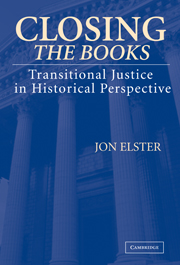6 - Victims
Published online by Cambridge University Press: 17 November 2009
Summary
INTRODUCTION
Acts of wrongdoing that cause suffering can elicit two reactions in the victim (or in third parties). First, there may be a desire to impose a corresponding suffering on the wrongdoer: an eye for an eye. Second, there may be a desire for the harm to be undone, at least to some extent or as far as possible. As shown by the institution of “Wergeld,” these two ways of restoring an equilibrium can serve as substitutes for each other. In ancient Teutonic and Old English law, according to the Oxford English Dictionary, Wergeld was “the price set upon a man according to his rank, paid by way of compensation or fine in cases of homicide and certain other crimes to free the offender from further obligation or punishment.” Conversely, one might think of punishment as a substitute for compensation if the wrongdoer is unable to pay the Wergeld. Yet in modern legal systems, punishment is not justified by the needs of the victims. Reparation for victims of wrongdoing is uncoupled from punishment of the wrongdoer.
The process of compensation may nevertheless be wholly or partly shaped by punitive intentions. In the French Restoration, some émigrés wanted to punish the purchasers of their properties by having them fund the indemnity. Although the preference in post-Communist Czechoslovakia for in-kind restitution over monetary compensation or voucher schemes may have been overdetermined, one motive was to prevent properties from falling into the hands of the former nomenklatura.
- Type
- Chapter
- Information
- Closing the BooksTransitional Justice in Historical Perspective, pp. 166 - 187Publisher: Cambridge University PressPrint publication year: 2004



